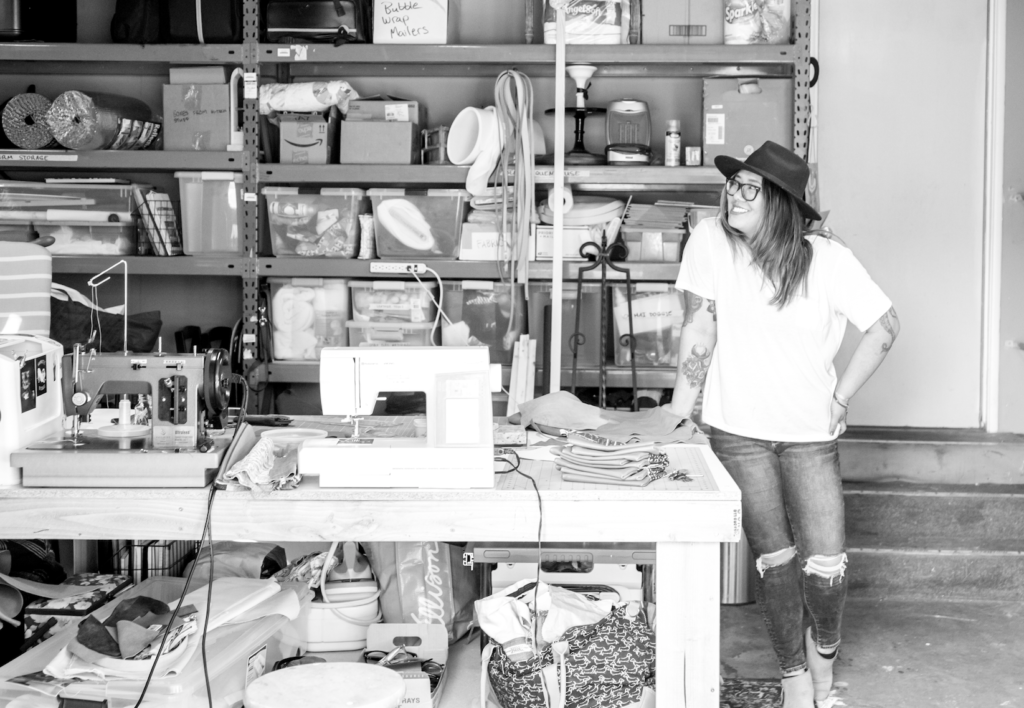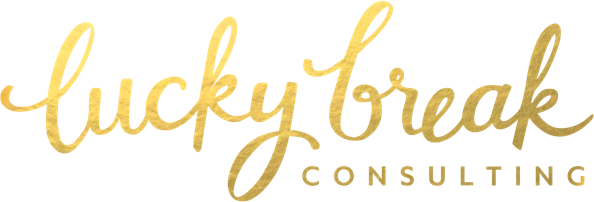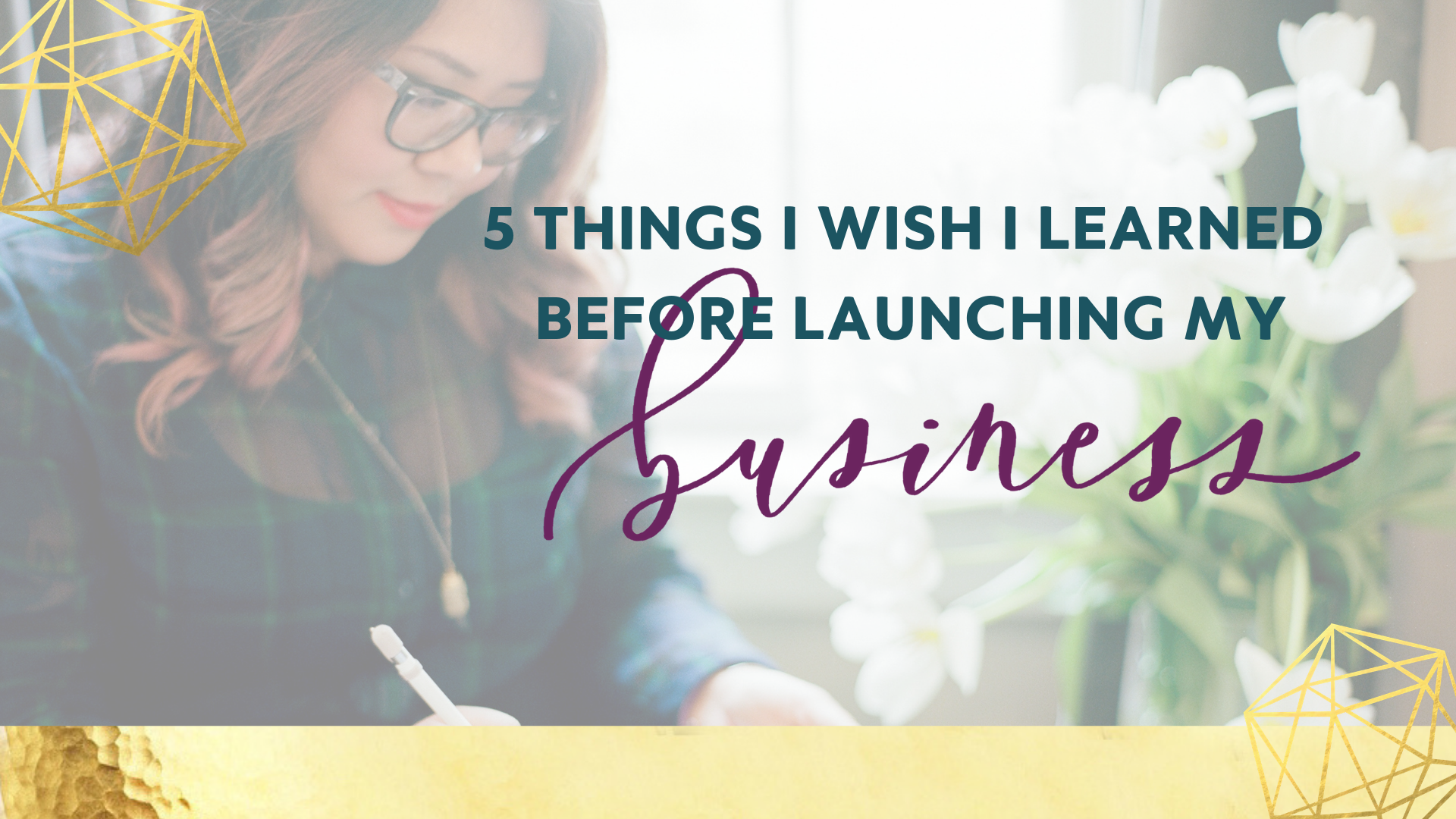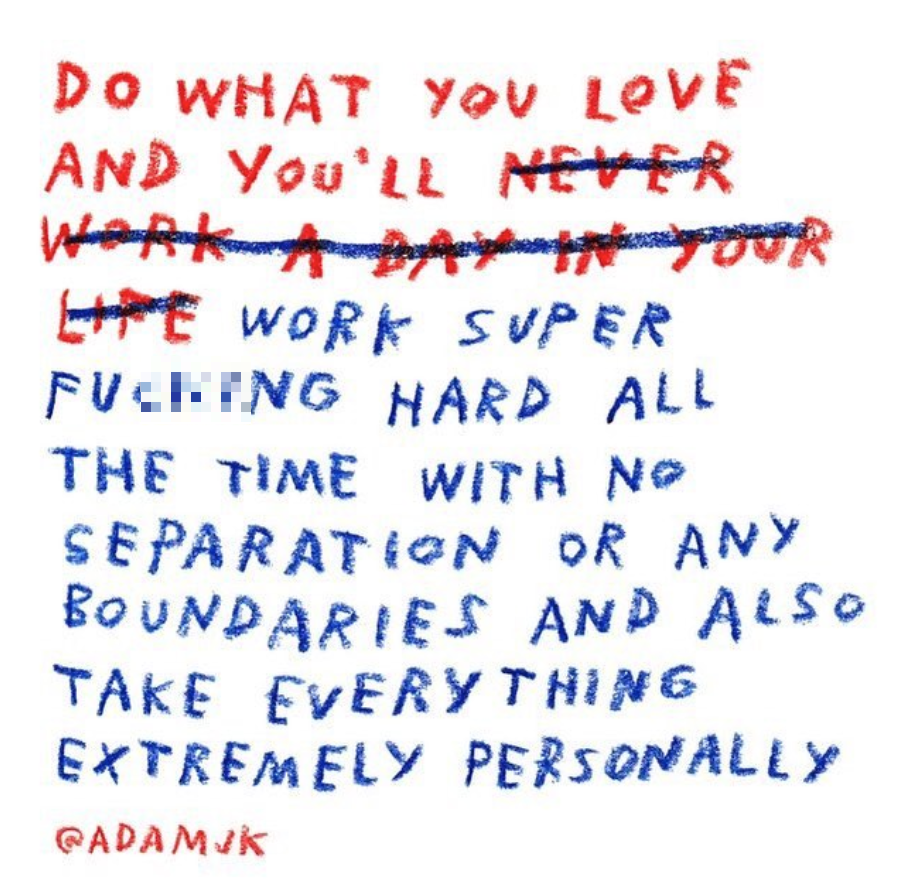When I first started my brand, I struggled so much in every aspect of the business. There is no handbook to tell you what to do and no glossary for troubleshooting issues. So today, I’m sharing the 5 things I wish I knew before I launched my business.
It’s no secret that starting your own business is challenging. Layer in the complexities of being a creative, maker-based business and you have a recipe for the world’s most stressful dream job. While it may seem like a long list of grievances as to why you shouldn’t launch a business, the truth is that this is some of the most rewarding work you’ll do. I promise.

5 Things I Wish I Knew Before I Launched My Business
I’m Angie, and I’m one of the gals on Team Lucky Break. In addition to working with LBC, I’m also the founder, heart, and soul of bobo design studio, which is my wanderlust inspired lifestyle brand. Owning a budding business comes with a lot of unsolicited advice, often from people who have never even owned a business. If I had a dollar for every person, who came up to me and said: “you know what you should do?” I would be rich. But take it from me, I know first hand the woes that come with building a brand. If only I had gotten my hands on a “Top 5 things I Wish Someone Had Told Me Before I Launched My Business” blog post, I might be in better shape! So consider this my gift to you.
1. Saved enough? Ok, now save some more.
When I decided to make the jump from side hustle to a full-time gig, I did some significant saving for about a year. I did soft calculations of the costs and decided what I needed to have set aside to feel comfortable with leaving my job. What I did not anticipate were all the costs that I couldn’t predict. Operational costs, lawyer fees, filing fees for complex applications like trademark or copyright. Buying and sourcing for future seasons, which meant spending money that I wouldn’t see a return on for up to 6 months. Upgrading software plans and purchasing apps for my site. As I increased output and required more advanced systems, the monthly costs seemed to grow disproportionately higher than I had initially projected.
This doesn’t even count things like mistakes and poor choices that you cost you in product development, shipping errors, ordering the wrong supplies, etc. My advice is to save, save, save, and then save a little bit more. You’re going to need it!
I never want to encourage people to quit their job, and if you are thinking about that, be smart about it. But if you need some investment money to get you over hurdles, there are great options like Kiva. Check out our blog post on these 0% interest microloans for small business!
2. “Entrepreneurship is not glamorous.”
If you’re on the verge of making that jump to being a full-time creative entrepreneur, know that the path to financial independence and having a successful business is far from glamorous. Running a business can be lonely, alienating, frustrating, draining, trying on personal relationships, while messing with your self-esteem and self-worth.
Sometimes it’s hard to find the emotional support you need because many of us don’t start with a network of entrepreneurial friends in our inner circle. Even if we do, it’s hard to find the time to lean on each other in a way that can be meaningful. This feeling of operating on an island can be an overwhelming feeling making it hard to stay positive and to work through.
A great way to combat this is by joining something like our Lucky Break Think Tank, which is a mastermind made up of small business owners. These communities are great to ask questions, vent, and even offer advice. However you get it, build yourself a small, well-curated army of entrepreneurial friends who can offer pep talks, guidance, and give-it-to-you straight advice when needed.
3. You’re a maker, but making will be 3-5% of actually what you do.
I left my job to focus on selling the things I made. I thought this meant I’d be an artist, making things all the time! Foolish me. I spend more time on operational aspects of the business than I do making a product to sell. That means being the IT person and building a website, learning how to use Quickbooks so I could handle my accounting, and watching every tutorial video in my email marketing platform so I can send out a single email. I had to understand various sales channels so I can sell to wholesalers, create lead magnets, and sell direct. Becoming a master social media marketer was on the agenda, too. I also had to become intimately familiar with the retail industry, which means being two seasons ahead of the season we’re actually in.

If you want to turn your craft into a business, get a full grasp of what that means because I can guarantee that you’ll be doing more business than you will be crafting. I also recommend finding a passion project that’s creative, but separate from your business. And of course, make time for yourself to unwind and detach from the business.
4. It’s not enough to have a great product.
I’m sure you are nodding your head right now. It’s not about the product anymore; it’s about the branding, the product photography, pricing, the marketing strategy, the context of your product and your brand. Long gone are the days of having the highest quality product and waiting for people to come to you. It’s up to the brand to craft the story, create the demand, solve for the problems that exist, and connect potential customers to your product. That means doing some of the things I listed in bullet 3 really well: social media, having an intuitive website, fantastic visual branding, great storytelling, strategic email marketing strategy etc. There are lots of brands with terrible products that are successful because they know to have all their ducks in a row- sometimes relying on an excellent product is less of importance.
But take this as a learning lesson. Don’t spend all your resources and effort in creating products that aren’t tested. Make sure there is a market for what you create. Lela always talks about taking your “maker googles” off and putting on your “consumer spectacles.” If your product isn’t perfect, that’s ok! If you have a sound foundation (branding strategy), are priced strategically and appropriately (know your costs and value), then you’re already light years ahead of the competition.
5. No amount of 30 minute free webinars will prepare you. Hiring real help is essential!
Experts, coaches, mentors, and consultants are an incredible investment. Not only do they tell you what to do, more importantly, they tell you what NOT to do. I hear the same re-hashed advice over and over again on the internet. But the real value is hearing from someone who has learned from their mistakes. Those are the opinions that matter, and that is the advice that will help guide you.
If you have the discretionary funds now, hire someone early, and build the foundation for your business. Invest in yourself and learn to do things the right way. I liken it to building a house. Invest in building a sound structure from the ground up. Sure, it costs a lot of money upfront, but that house will withstand the storms ahead requiring little maintenance along the way. Build a shack, and you’ll spend more money over the lifetime of the home to fix things that are broken. And heaven forbid the house falls apart completely! The cost to bring in a contractor to tear down and rebuild the whole thing will cost you more than if you just spent the money the first time.
What are some bits of advice you could share? Are there 5 things to know before launching a business that weren’t listed? Is there is something you wish someone had told you when you started? Share them in the comments below!







Awesome article, I loved the line, Layer in the complexities of being a creative, maker-based business and you have a recipe for the world’s most stressful dream job. People are under the impression that being an entrepreneur means you get to work from the beach. Love that you put things into perspective.